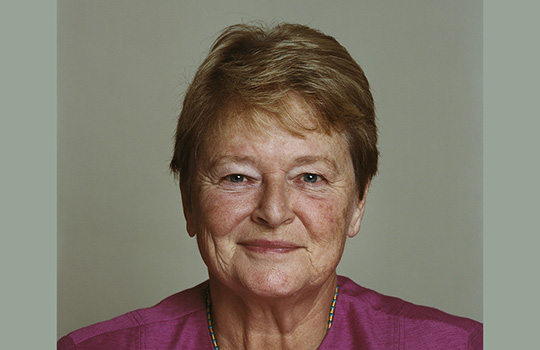If urgent action is not taken to combat antimicrobial resistance, then development gains could be wiped out with alarming consequences for us all
 Antimicrobial resistance (AMR) is one of the most serious and growing risks posed to human health and development worldwide.
Antimicrobial resistance (AMR) is one of the most serious and growing risks posed to human health and development worldwide.
Overuse of antibiotics in both humans and animals is leading to resistance to treatments for infectious diseases including tuberculosis, HIV, and malaria.
This poses a significant obstacle to achieving the UN Sustainable Development Goals, and risks undermining substantial progress on health and disease eradication efforts of recent decades.
As a former Director-General of the World Health Organization, I recognise the scale of the threat and the need for urgent action.
And as a former Prime Minister of Norway, I know that political will from heads of state is essential to overcome institutional hurdles to bold action, and to challenge vested interests in the agricultural and pharmaceutical sectors.
Today I am writing as Deputy Chair of The Elders, the group of independent former leaders founded by Nelson Mandela in 2007. The Elders offer their collective experience to promote peace, justice, and human rights worldwide.
We are concerned that if urgent action is not taken to combat AMR, then development gains could be wiped out with alarming consequences for us all and especially the poorest and most vulnerable people on the planet.
So AMR is just as much about human rights and justice as it is about health.
Overuse and misuse of antibiotics in both animals and humans is contributing to AMR.
In some countries, approximately 80% of total consumption of medically important antibiotics is in the animal sector, largely for growth promotion in healthy animals.
This is why new guidelines published by WHO on 7 November on the use of such antimicrobials in food-producing animals are such a welcome step forward.
The guidelines recommend an overall reduction in the use of all classes of medically important antimicrobials in food-producing animals, and a complete restriction on the use of all classes of such antimicrobials in food-producing animals for growth promotion.
Substantial evidence exists from the UK, the Netherlands and Denmark that the use of antibiotics can be cut by between 60-70% without an adverse impact on food production.
In my own country of Norway, we have never intensively used antibiotics in food production—in fact, the use of antibiotics as growth promoters has been banned nationally since 1995.
Antibiotics cannot be bought in Norway unless they have been prescribed by doctors or veterinarians.
Now, as part of a national five-year strategy against AMR (2015-2020), Norway aims to give precedence to alternative methods that have been proven equally efficient and safe over AMR, and adopt guidelines for prudent use of antibiotics in veterinary and human medicine.
I believe that such approaches should be emulated in other countries, including in the developing world, which do not currently have such robust regulatory frameworks in the domains of food production, animal welfare and agricultural policy.
For this to be a success, national governments need to be supported by international and multilateral institutions.
The WHO has played a part by developing these new guidelines, and I hope that the other two key institutions with which it works—the UN Food and Agriculture Organisation (FAO), and OIE (the Office International des Epizooties—World Organisation for Animal Health), will also give these guidelines their wholehearted support.
Food security is of course a critical issue which must not be imperilled by measures to combat AMR.
But as the WHO guidelines make clear, there should be no contradiction between providing sufficient food, including sustainable meat products, to the world’s growing population, and drastically cutting down the use of antibiotics.
Research also shows that AMR is strongly correlated with out-of-pocket health financing in low and middle-income countries that require direct payments for drugs.
Publicly financed and controlled drug supplies are therefore important in combatting AMR. I hope that WHO will also impress upon member states the importance of regulating drug supplies and reducing dependence on out-of-pocket expenditure on medicines for combatting AMR.
Meaningful progress against AMR is possible if key institutions impress upon their relevant constituencies how acute the threat is, and how rapidly action is required.
The new WHO guidelines are an encouraging step, but the road ahead is long and arduous. Future generations will not forgive us if we choose complacency over courage.
Gro Harlem Brundtland is deputy chair of The Elders, the independent group of former leaders founded by Nelson Mandela. She served as the Director-General of the World Health Organization from 1998-2003 and was the first female Prime Minister of Norway.
Competing interests: None declared.
